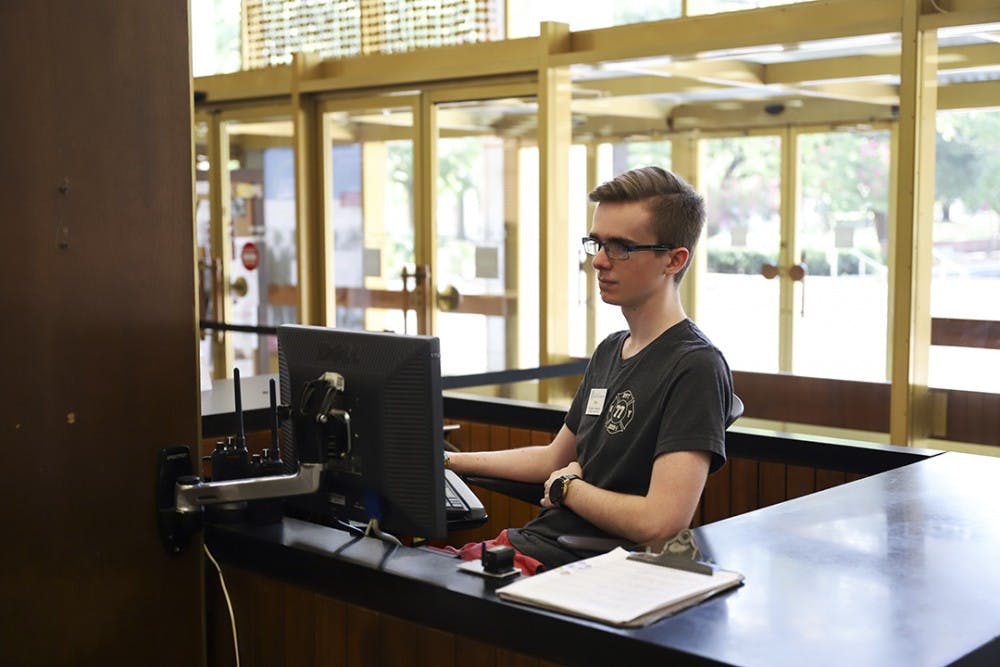When Thomas Batka first heard USC was transitioning online, his immediate concern was losing his university job as a peer tutor.
“I was just worried that, OK, well, we’re not gonna have any more tutoring, ‘cause there’s definitely no way we can do it,” the second-year math student said.
However, a week after the pandemic closed campus, the Student Success Center (SSC) began training student employees to use Microsoft Teams and Blackboard Collaborate to continue working, according to the assistant director of peer learning at the SSC, Scott McDonald.
McDonald said all students were given the option of working remotely, and he says a majority of them stayed.
“Being a peer leader, I mean, there’s a community for that,” McDonald said. “These are some of their friends that they work with, so they actually enjoy still having that staff meeting and a time to, you know, hop on a Zoom meeting with their friends.”
But for some, including peer consultant Meghan Whittle, the uncertainty of moving back home meant giving up their jobs. Whittle, a second-year international business and economics student, chose to step back from the SSC after moving home to Lexington, South Carolina.
“I wasn’t sure what my schedule was going to look like in terms of being at home. Maybe I'd have to watch the dog, or go out and do something for my mom,” Whittle said. “Some of my professors have been giving us more stuff, it seems like, so I just wasn’t sure what my schedule was going to be like and if I would be able to give my best possible consultations from home.”
For Batka, who is working from Illinois, connecting with students during tutoring sessions over virtual platforms has proved challenging.
“It’s harder to get a sense of if they’re getting it or not, ‘cause they can say that they’re getting it, and I can try and look through the grainy and visuals and see, like, ‘Do they look like they’re actually getting it?,’ or I just have to move on and hope that they actually do,” Batka said.
Batka said tutors are now only working five hours a week, a decrease from the 10 to 11 hours they worked when classes were in-person.
Peer tutors and consultants were also previously required to hold office hours, which was guaranteed paid time they were required to be in the SSC. Now that employees are working remotely, McDonald said tutors only work scheduled 1-on-1 appointments.
"That's more to be a good steward of our money, because if we were paying for them to be online, for those same hours that we usually had somebody in person on drop-ins, we'd be wasting a lot of money, and we don't want to do that to students," McDonald said. "We're not trying to waste y'all's funds."
According to McDonald, there also has been a significant decrease from the "several hundred, almost a thousand" visits the SSC would receive on a given day. However, he says the number of students utilizing the SSC is slowly rising.
"Now that students are getting used to it, we're seeing our numbers start to climb back up ... They are, what's a good word for it — embracing it," McDonald said. “Our students want to work, and they want to meet with students, and I know a lot of offices are in the same boat."

